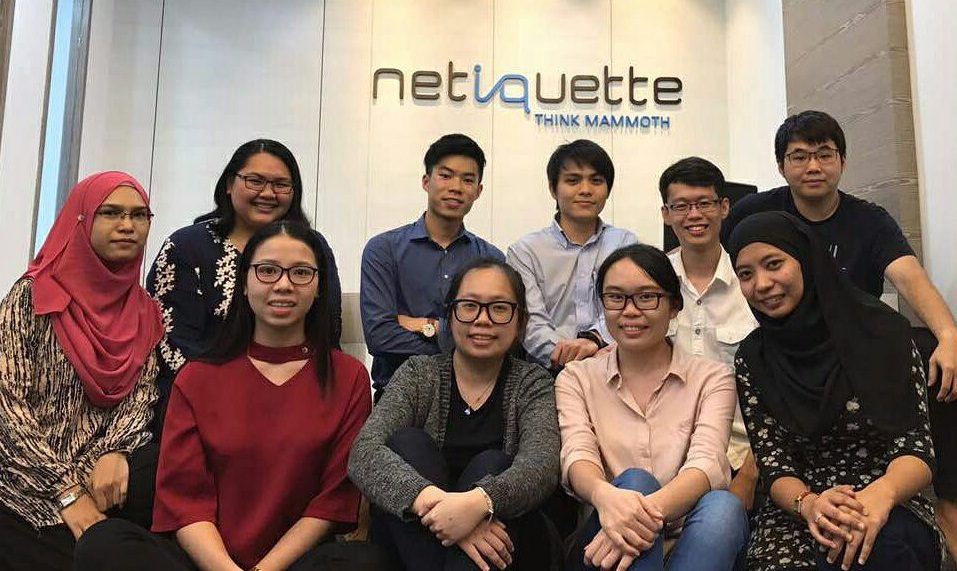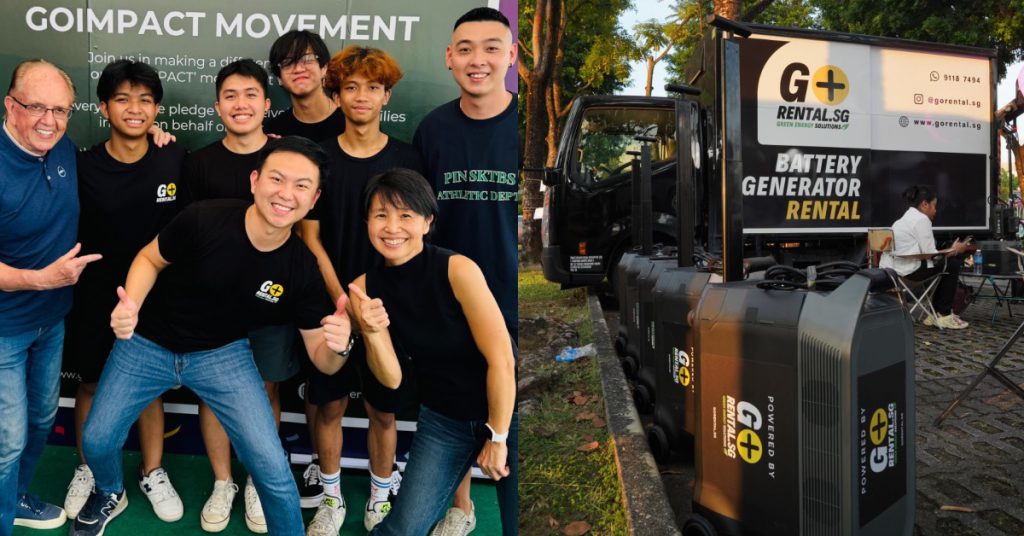There’s an old saying about Jacks-of-all-trades being masters of none, but once in a while, a company challenges that by stretching itself out in all directions yet taking the time to build extremely comprehensive features.
Netiquette describes themselves as a cloud-based business solution, which we found was really an understatement when it came to what they do.
We actually went in for an hour long presentation where Netiquette tried to give an overview of their various modules and services. Let’s just say that this one article is not able to do them justice in terms of covering the system’s complex yet flexible nature.
Skimming the surface, the main areas they cover include helping SMEs in managing these aspects:
1. Accounting management deals with cash flow, billing and invoicing, tax computation and a lot more. It also can generate general ledgers, balance sheets, GST reports, profit and loss and also account statements.
We’re not accountants or number whizzes so we’ll leave the finance jargons to the professionals, but a quick comparison with Quickbooks and the more recently launched Financio would reveal a large disparity.
What sets Netiquette apart is that their functions are extremely varied and customisable—by a mile.
2. Inventory management is meant to help manage work processes ranging from purchase and sales to inventory stock processes. Among a whole other list of features, comprehensive reports can also be generated to determine products that are necessary for growth and help users determine what are the most effective pricing strategies.
3. The payroll system combines human resource tools and payroll management in one system, allowing for multi-payment modes, an e-leave module and even caters to all government requirements.
The closest point of comparison, to us, at this point would be Kakitangan. Kakitangan is a HR management online platform, built by a Malaysian team. On a quick glimpse, Kakitangan’s interface is more user-friendly and pleasing to the eye; however, in terms of functions and customisable services, Netiquette would win hands down.
4. The customer relationship management system is meant to help vendors keep track of their customer requests or issues using the ticketing module, among other features. It collects vital data like customer profiles and order history, allowing the user to help identify new selling opportunities on top of reducing operational costs.
The Netiquette team explained that the CRM system is something that is relatively new in Malaysia and most sales and management teams are still unfamiliar with the term. Therefore they cannot yet comprehend the system’s abilities.
However in other countries like Singapore, for example, many companies are already leveraging off CRM and even consider it one of the most important digital technologies for marketers, second only to email.
To Netiquette, unfortunately in Malaysia there is yet a huge undiscovered potential in having a dependable CRM system to track the efficiency and progress of a company.
To break it down, the CRM system can begin tracking the moment you:
- Obtain a sales lead (when, who made the first point of contact, who is the customer, what is the customer’s profile, etc.)
- Schedule the next few follow up meetings (when, what was discussed, what is the level of interest shown from the potential client, quotation, etc.)
- Close a sale (when, who closed the sale, final price quoted, etc.)
This system creates a sales pipeline of which then a manager can have an overview and report of the team’s operations. Such data can then be used for training, better client retention, improved customer service, and reduce operational costs. The possibilities of using the data obtained for a company’s growth are endless.
5. The point of sales system delivers real-time access to the operational and financial data to consolidate the sales and inventory into one platform.
6. The customisable cloud solution is their newest feature and helps in areas like project management, email blasting and can be integrated with any other solutions.
At the end of it, Edwin Chua the CEO had this to say, “There are much more things that Netiquette can do and it most probably going to be 10 more pages long.”
Fortunately, Netiquette provides free training and tutorial sessions to their users so that they are able to make full use of each module’s respective features and settings.
Since the entire software operates on a single cloud system, Netiquette reduces the cost as there is literally no use of physical hardware. RM50 a month seems to be a helpful deal for SMEs out there in their early stages.
Comparably, although Kakitangan may have an easier user interface with the same price, Netiquette’s customisable and personalised software does put them slightly ahead.
Evolving To Cater To Companies’ Needs
Netiquette came into being as a business solution partner in Singapore in late 2001. According to Edwin, “We were dealing with old traditional accounting solutions on Windows platform but were very successful in bringing in business.”
He remembers the internet being painfully slow then, and it wasn’t until 2006 when internet speed improved and they came up with the idea of allowing their users to connect real-time and monitor their businesses online.
Bringing us back to present day, we asked Edwin, how does Netiquette remain relevant after so many years of operation?
Their true service lies in the power of customisation. Netiquette understands that no one business is the same, and they want to be able to cater to those differences and needs.
As such, they use feedback gathered from their clients via surveys to customise each client’s account, respectively. Thus, their current pool of users may find that they have their own unique version of Netiquette that has been personalised to suit their business.
They’ve also brought their platform to mobile, knowing that business owners need access on-the-go in this modern age.
Edwin shared, “The world is actually shrinking in size due to the internet, lowering cost of airfare, advanced communication tools and encouragement from the government to trade globally. SMEs today are not confined to any single geographical region; in fact many are expanding into regional countries for their expansion.”
As Netiquette is also active in quite a few countries in Southeast Asia (including Singapore and Malaysia), they also have to deal with taxation, language and cultural differences in each nation.
According to the team, they overcome this by extensive research before going into any new market, taking the time to understand local business and government requirements.
As for the future, they’re looking to continuously develop their cloud software solutions. Their cloud-based software already functions across different platforms, and they’re looking to focus more on their POS systems, particularly when it comes to marketing themselves to cafés for use.
Their ultimate dream? That SMEs and businesses are able to achieve everything that they need to function smoothly and as efficiently as possible via Netiquette’s products.












